- About Us
- Columns
- Letters
- Cartoons
- The Udder Limits
- Archives
- Ezy Reading Archive
- 2024 Cud Archives
- 2023 Cud Archives
- 2022 Cud Archives
- 2021 Cud Archives
- 2020 Cud Archives
- 2015-2019
- 2010-2014
- 2004-2009
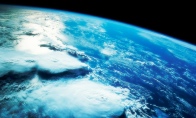 |
Ezy Reading : |
So I find myself in somewhat of an existential crisis these past few weeks over the current state of the world…
With that began a recent exchange of emails with a close friend feeling rather troubled about humankind in general, and eager to open up a dialogue on the subject:
If, as some say of mankind, ‘everything we create, we use to destroy’, then what here is worth saving? I recognize that this is a dark take on things, but the more I look at the world of late, the more I can’t help but wonder if this is true of us at our basest of natures. We seem to construct devices to encourage or create new vices and have lost sight of any semblance of harmony. What can be done to stem the rising tide of this disease?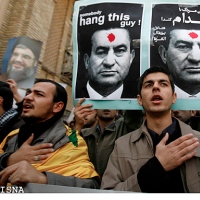 It’s as if as our species as a whole is comprised still of mere toddlers, well short of adult maturity, and it’s this ‘stunted growth majority’ that seem to retard what achievements and growth some individuals manage to attain. We seem to conduct ourselves in the end only to a design that is beneficial to us. Motivations often fall under the guise of charity or civil responsibility, but as is becoming invariably clearer in events playing out around the world today, in action this often comes off merely as a grab at opportunity and resources for our own use and regardless of cost to others.
It’s as if as our species as a whole is comprised still of mere toddlers, well short of adult maturity, and it’s this ‘stunted growth majority’ that seem to retard what achievements and growth some individuals manage to attain. We seem to conduct ourselves in the end only to a design that is beneficial to us. Motivations often fall under the guise of charity or civil responsibility, but as is becoming invariably clearer in events playing out around the world today, in action this often comes off merely as a grab at opportunity and resources for our own use and regardless of cost to others.
I realize I’m grouping all of us together and including people in this ‘us’ and ‘we’ that I know don’t support these sorts of policies or actions, but I do so because I recognize that regardless of our consent or lack thereof we have inherited the problems and will be responsible for our part in how to move forward.
In the end that's what I'm asking for, I want the thoughts of those minds I respect on what to do next. I find myself at a loss as to the potential that a single man or woman can have on such a vast systemic problem. I am, however, terminally optimistic. Is it even possible that we might survive mankind’s adolescence without destroying our species? Abraham Lincoln said the within each of us there is a battle between the darkest of our natures and the lightest, and that what we must do is appeal to the better angels of our nature in order to heal our common wounds and come together united.
Right now, it’s only in this that I can find solace.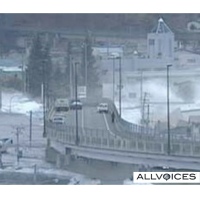
It’s heady stuff, no? To add to the weight of all this, I received this email about a week before all the devastation and destruction took place in Japan. As if the massive loss of human life wasn’t enough, we’ve since had to deal with the subsequent risk of nuclear meltdown which only compounded the sense that perhaps a world was indeed sinking under the weight of its own overstretch.
It took me a while to find the words to pen a reply to my friend’s initial email. I didn’t quite know how to start, and in the end was unsatisfied with what I did manage to write. I could certainly more than appreciate the sense of increasing disenchantment one might feel at the state of the world today on so many different levels (where to begin?), and was familiar with that feeling of helplessness and powerlessness in the face of so many overwhelming obstacles. I wondered however if there wasn’t, indeed, a risk of slipping into over-thought, cynicism and real depression if one allowed themselves to be drawn too deeply into despair. By this I, of course, wasn’t advocating a head-in-the-sand approach of ignoring problems and unplugging from the discourse (though many people do happily live out their entire lives just like this). And, further, I was also mindful of the fact that not everyone has the luxury of pausing to contemplate and ponder the worries of this world as they labor to go about their day-to-day lives juggling multiple jobs and struggling to keep above the poverty line.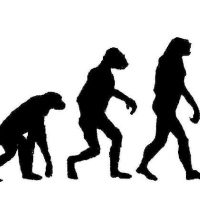
Rather –for me at least- I wondered if my own answer was to remain informed and maintain a critical eye on the world but -through the entire process- above all to hold hard to faith. I’m not talking here in religious terms, but rather in standing firm to the inherent belief that we’re better than we so often seem to be, and that the proof in our capacity for good and what we can do when we're at our best is plainly in evidence for us to see. It's just hard to find sometimes when there's so much prevailing misery clouding the horizon. We’ve also seen countless times in history, of course, how the actions of just one individual can rise above the throng with the power to make a difference and change things for the better. Without faith in our capacity to do this we're destined to glum, bleak resignation- and it's in that kind of resignation that there could never be any chance for us to improve.
This kind of rhetoric is, of course, very sentimental, incredibly general, and loaded with plenty of easily dismissed clichés that we’ve encountered time and time again. It’s true. Waxing lyrical on ‘thinking good thoughts’ may be nice but what of substance? What keeps someone from the ills of apathetic, blind faith and from doing little more than spewing out hot air?
The truth is I don’t have hard solutions for much of what ails the world.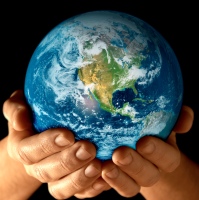 I’m no expert when it comes to such matters as financial crisis and reform, the complexities of global politics or as to how we might better redistribute wealth. A wise friend once suggested to me that we spend far too little time in our lives focused on what it is that we can control and affect directly- that instead we so often tend to worry and moan about those things well out of reach and outside of our sphere of influence. By the same token, especially if the world’s problems seem insurmountable, one remedy is to try to impact change where you can actually make a difference. I know we so often roll our eyes and grow weary of folks advising us to change what light bulbs we use, to get involved and volunteer for a local community program or to engage a friend whose senses have dulled on a political or social issue in conversation to try and empower and recharge them with an active voice… We’ve heard it all before, sure, and I despise that Haley Joel Osment helped to sour the expression ‘pay it forward’ for me. It’s true though: every little bit helps and can make a difference, I believe that. We’ve no right to complain about the state of the world if we do nothing about it, and we have to believe that we can make a difference otherwise we may as well just go ahead and pathetically roll over and concede defeat.
I’m no expert when it comes to such matters as financial crisis and reform, the complexities of global politics or as to how we might better redistribute wealth. A wise friend once suggested to me that we spend far too little time in our lives focused on what it is that we can control and affect directly- that instead we so often tend to worry and moan about those things well out of reach and outside of our sphere of influence. By the same token, especially if the world’s problems seem insurmountable, one remedy is to try to impact change where you can actually make a difference. I know we so often roll our eyes and grow weary of folks advising us to change what light bulbs we use, to get involved and volunteer for a local community program or to engage a friend whose senses have dulled on a political or social issue in conversation to try and empower and recharge them with an active voice… We’ve heard it all before, sure, and I despise that Haley Joel Osment helped to sour the expression ‘pay it forward’ for me. It’s true though: every little bit helps and can make a difference, I believe that. We’ve no right to complain about the state of the world if we do nothing about it, and we have to believe that we can make a difference otherwise we may as well just go ahead and pathetically roll over and concede defeat.
But that’s the best I can offer now, vague and general as it is: faith that spurs action, and those subsequent actions sustaining faith.
What do you think? We invite readers to share with us their thoughts on what to make of a world in turmoil? What can a mere individual do? And what keeps you hopeful for the future?
Mail your suggestions to feedback@thecud.com.au Responses will be published in our forthcoming issue.
Ezy Reading is out every month.
